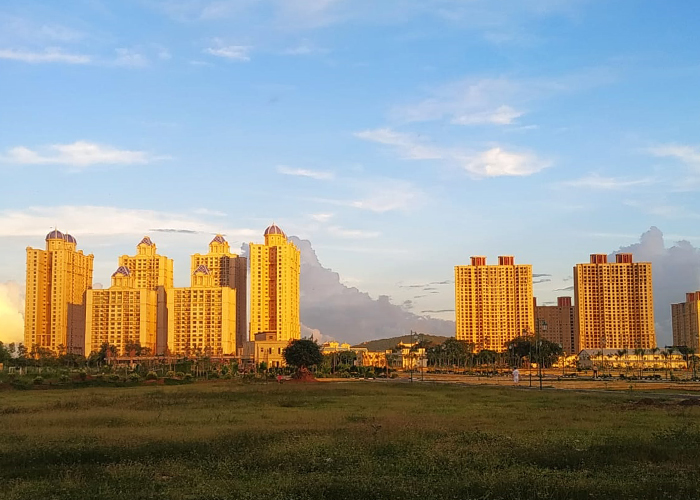Staying in an eco-friendly township spread across 400+ acres amidst greenery, organic farms and water bodies offers multiple advantages during a public health crisis.
Social distancing becomes easy because of the wide-open spaces. A self-contained integrated township like Hiranandani Parks has its own multiple-specialty hospital headed by specialists, in-patient facilities, life-saving support systems and efficient nurses.
Residents need not step out and mix with strangers during shopping as the township features retail outlets and shopping options. A wide range of sports facilities and over 40 attractions will certainly keep you engaged during a lock-down. But Hiranandani Parks has proactively closed down some of the facilities including the pool as a measure of abundant caution.
But the theme parks, walkways and ‘green’ attractions will offer opportunities aplenty to spend quality time with your close family. And for the spiritually inclined, the Agatheeswarar temple right inside the township is a blessing during challenging times. Another attraction is the Nakshatra Gardens in the vicinity of the temple with plants high on religious symbolism.
The stringent precautionary protocols to prevent the spread of COVID-19 are monitored at the highest level at the township.
Meanwhile, self-monitoring is for people who learn they might have been exposed to the virus but had only distant contact with the infected person. This means regularly checking your temperature and watching for signs of coronavirus infection, including fever, shortness of breath and coughing. A person who is self-monitoring should already be following community rules for staying home and limiting interactions with others.
Self-quarantine. This term is used to separate and restrict the movement of someone who is well but who recently had close contact with a person who later was diagnosed with the virus. A person in self-quarantine should stay home, and avoid going to the grocery store or interacting with the public even on a limited basis for a 14-day period. A person in self-quarantine should sleep in a separate space from family members.
Self-isolation. Anyone who has a diagnosed case or a suspected case based on their symptoms should self-isolate. A person in isolation should stay in a separate room with no or minimal contact with the rest of the household (including pets) and use a separate bathroom if possible.
While some people are practicing “social monogamy” — socializing with only one set of trusted friends — public health experts are now discouraging even that much contact during the lockdown. Even if you choose only one friend to have over, you are creating new links and possibilities for the type of transmission that all of our school/work/public event closures are trying to prevent, says an expert.
Most importantly, prevention begins at home. You have an essential role to play in slowing the spread of the new coronavirus. The good news is that small changes in personal behavior can stop the virus or buy time — slowing the outbreak, preventing hospitals from becoming overwhelmed and reducing cases until scientists develop treatments and, eventually, a vaccine.
Hand washing is the cornerstone of infection control, but we’ve all been doing it wrong. Wet your hands (the water temperature doesn’t matter), soap up vigorously and start counting to 20 as you scrub everywhere, including wrists and fingernails.
The germs on your hands, your desk and your face are now probably on your phone. Some of those germs are harmless, and some are gross. (A 2011 British study found fecal matter on 1 out of 6 smartphones.) Nobody has documented coronavirus transmission from a smartphone, and if you’re washing your hands frequently, it’s not a big worry.
Apple says to wipe your iPhone with a 70 percent isopropyl alcohol wipe or disinfecting wipes. Don’t use bleach or other agents. Avoid sharing your phone with others if you can — touching someone else’s phone is like holding their hand. And try to use a headset or the speaker phone function so your phone doesn’t touch your face.
Last but not the least, keep your distance. And stop hoarding.
When you are part of a vibrant and responsible community at a township like Hiranandani Parks, you can build resilience by supporting others.
Getting through this crisis will require resilience. While it helps to have a support network of friends and family, you can get an even bigger resilience boost by giving support to others and getting support in return.

